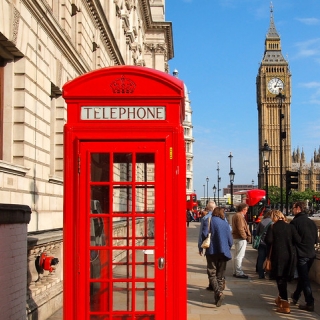


The Pound Sterling (GBP) rises during the North American session against the Greenback even though US President Donald Trump enacted automotive tariffs on all cars made outside the United States (US). Initially, risk appetite deteriorated, but it has improved. Therefore, high-beta currencies like the Sterling advance, with GBP/USD trading near 1.2930, up 0.35%.
GBP/USD rises as risk appetite rebounds, while UK seeks carve-out from new US trade measures
On Wednesday, Trump announced 25% duties on imported automobiles, effective April 2. He said that he would announce additional tariffs next week.
This triggered a reaction worldwide, including in the United Kingdom (UK). Finance Minister Rachel Reeves said they are working with the White House to secure an exemption from US auto tariffs.
Data from the Society of Motor Manufacturers and Traders revealed that the US is Britain's second-largest car export market after the European Union (EU).
Aside from this, US economic data revealed that the number of Americans applying for unemployment benefits rose below estimates of 225K, increasing by 224K in the week ending March 22. Other data showed that the GDP for the last quarter of 2024 was confirmed at 2.3% QoQ, up from 1.9%, slightly below estimates of 2.4%, and Pending Home Sales dipped 3.6% YoY in February, though improved compared to January's 5.2% plunge.
Ahead this week, the UK economic docket will feature Retail Sales data. Across the pond, investors eye speeches by Federal Reserve (Fed) officials alongside the release of the Fed's favorite inflation gauge, the Personal Consumption Expenditures (PCE) Price Index.
Source: Fxstreet
Gold prices rose sharply again on Tuesday (January 20th), hitting a new record, breaking through the psychological barrier above $4,700 per ounce. This rise was driven by a "flight to safety" as geopo...
GBP/USD strengthened to around 1.3480 at the start of Friday's Asian session, holding above 1.3450. This strengthening occurred as the US dollar weakened again, as markets became increasingly confiden...
The GBP/USD exchange rate moved steadily around 1.3465 in early Asian trading on Wednesday (December 31). This relatively calm movement occurred because trading volume was expected to be thin ahead of...
The British Pound (GBP) softens against the US Dollar (USD) on Wednesday, with the Greenback finding mild support amid reduced liquidity during the shortened US holiday session. At the time of writing...
Pound Rebounds, UK Data Determines GBP/USD strengthened after three consecutive days of declines. In Monday's Asian session, the pair traded around 1.3394, approaching the 1.3400 level, ahead of the ...
Gold prices briefly caused a stir after hitting a new record, but then slowed. The main trigger: US President Donald Trump withheld the threat of tariffs on Europe and claimed there was a "framework" for a future agreement on Greenland. This calmer...
Oil prices were little changed in Asian trading on Thursday after US President Donald Trump backed down from a threat to impose tariffs on European countries over Greenland. This decision helped ease geopolitical tensions and improve market...
The Nikkei 225 Index climbed 1.73% to close at 53,689, while the broader Topix Index rose 0.74% to 3,616 on Thursday, snapping a five-day losing streak as Japanese shares were lifted by a strong rally in chip and artificial intelligence related...